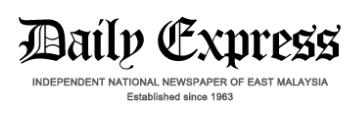

There should be one common Bahasa curriculum and syllabus
Published on: Sunday, January 08, 2017
Text Size:
We have another year to make things better.
Improving schools must certainly be one of these.
First, the DLP (Dual Language Programme) is a recent most laudable initiative of the Education Ministry.
It aspires to improve our students’ proficiency in English as well as expose them to the field of STEM (science, technology, engineering and mathematics) in its global lingua franca. Schools can opt to participate in the programme based on their readiness and their fulfilling of certain fair prerequisites.
All stakeholders have to play their part to ensure its success.
It is hoped that those who still harbour reservations about DLP will look beyond their own reserved perspectives and instead, endorse that which may bring about greater good for their charges. The maxim of “Think global and act local” has its merits here. We want our future generations, wherever they may be, to be confident, competent and constructive contributors to worthy global causes.
Second, the remove classes in our national secondary schools remain a thorn in our school system.
There are moves to revamp the curriculum and syllabus of remove classes yet again.
Perhaps the real solution is in having a common Bahasa Malaysia (BM) curriculum and syllabus for both national and national-type primary schools. This is even stipulated in our Malaysia Education Blueprint 2013-2025.
It is hoped that those vehemently opposed to the common BM curriculum and syllabus approach will look beyond their charges’ primary school years. They should realise the real “damage” done to their charges who may be ill-equipped in the language when they enter national secondary schools. A weak command of BM is a main contributing factor to the prevailing truancy and dropout problems. We want our vernacular school students to be proud in being proficient first in BM and then also in their respective mother tongue; not the other way round.
Third, the PBS (Pentaksiran Berasaskan Sekolah or School-based Assessment) is here to stay.
It aspires to present a holistic assessment of a student’s progress and reduce the emphasis hitherto purely given to academic achievements. While all efforts are being initiated to reduce the “administrative and clerical” aspects of PBS, stakeholders’ understanding and support of its relevancy is vital.
It is hoped that more parents, especially, will want to know and explore what other talents and/or natural traits their children may possess besides their academic ability. Parents will want to begin earnestly to invest in time and effort in their children’s all-round development. Parents will do well to remember what Albert Einstein once said: “Everyone is a genius. But if you judge a fish by its ability to climb a tree, it will live its whole life believing that it is stupid.” Each child needs us to believe in them, give them a little help and a little hope.
All parents and teachers should take heed.
Fourth, a buzzword in schools today is “21st century learning”. The Education Ministry wants our students to learn more efficiently and effectively with the help of educational technology. There is no denying the additional and multi-faceted benefits technology can bring to the classrooms, if it is properly and faithfully administered.
The right pedagogy makes difficult learning easier and simpler. When students have fully understood the intricacies of even the most complex of subjects, they can readily apply the new knowledge to a situation or a problem that needs solution.
In this context, teachers and parents, nevertheless, need to recognise that all those technology gadgets are tools and not masters to genuine learning.
Lee Shulman, a teacher/education researcher who was interested in expanding and improving knowledge on teaching and teacher preparation, defined (1986) pedagogical content knowledge as teachers’ interpretations and transformations of subject-matter knowledge in the context of facilitating student learning.
Good pedagogy also promotes thinking and problem-solving skills so essential in our present-day living.
Pedagogical content knowledge is what we should focus on in school improvement.
LKC
ADVERTISEMENT






